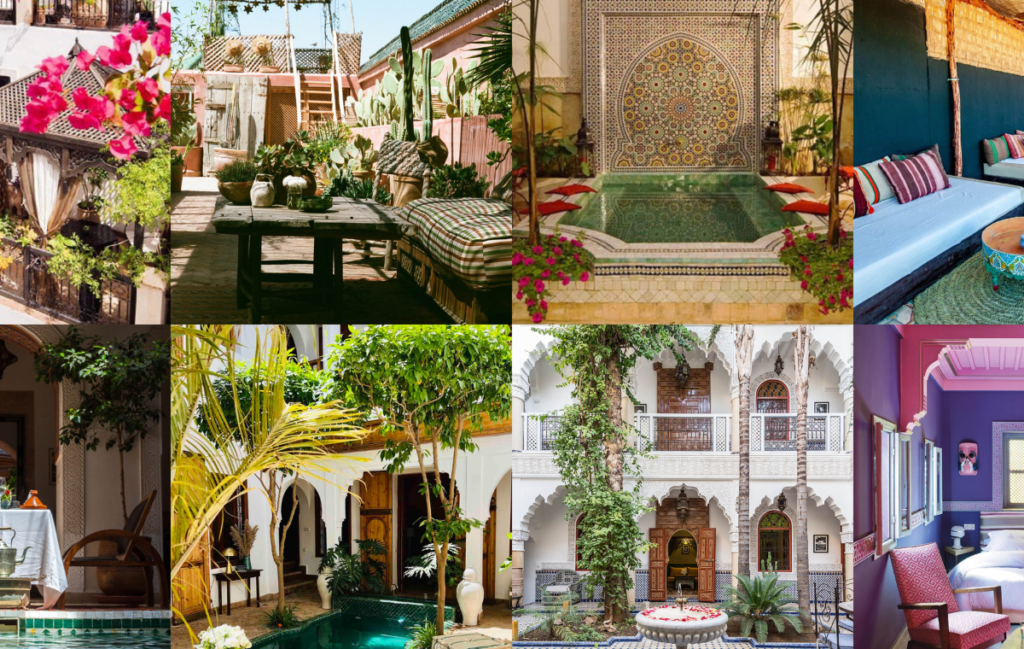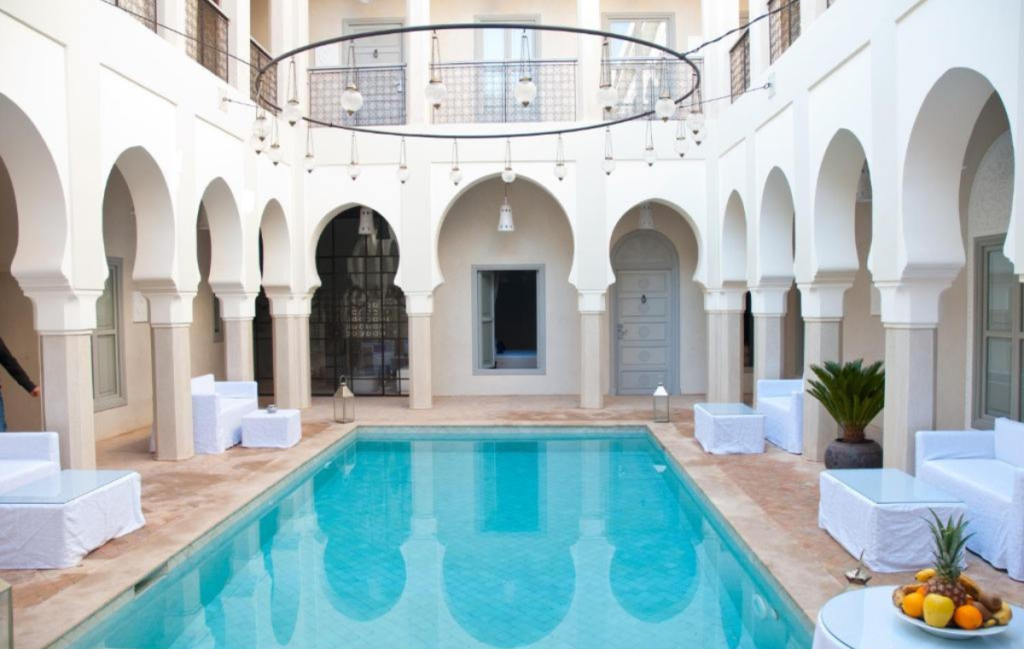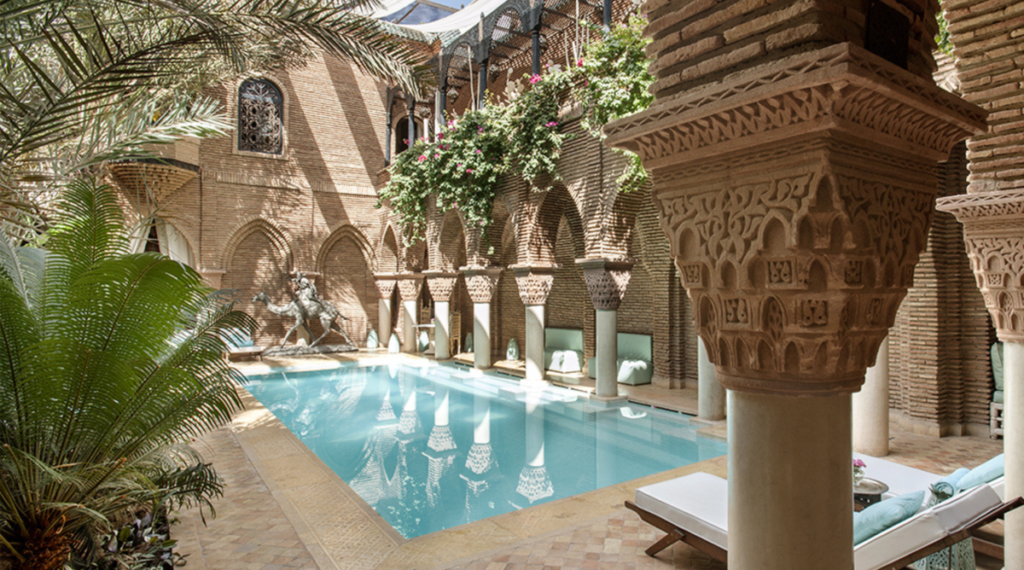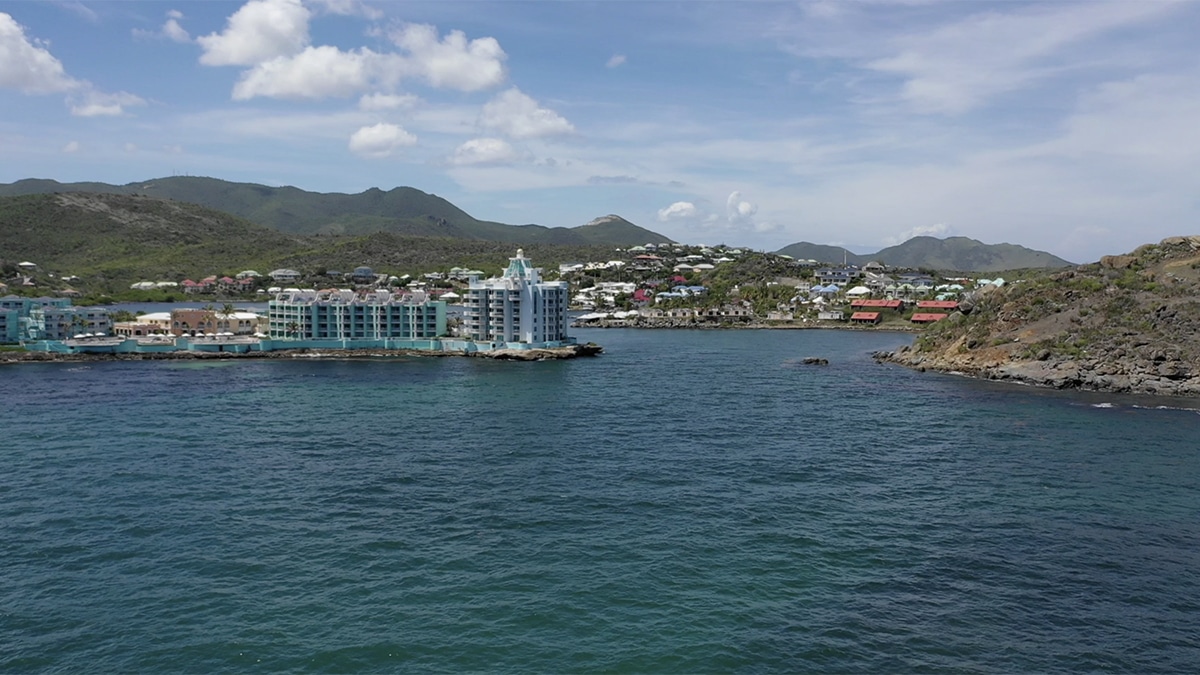Immersion in Culture: Staying at Real Moroccan Hotels with Rich History
I. Overview
Immersions in a destination’s customs, heritage, and culture is a more significant part of travel than seeing new locations. Through cultural immersion, tourists can expand their perspective on the world and strengthen their bonds with the places they visit. Morocco is one such location that is well-known for its extensive cultural legacy.
Morocco is a historical nation in North Africa with a dynamic blend of Berber, Arab, and European traditions. From Marrakech’s vibrant souks to the Sahara Desert’s serene oases, Moroccan scenery never ceases to enthrall tourists.
Moroccan customs, rituals, and traditions are a patchwork of practices handed down through the ages. Every element of Moroccan life is imbued with a sense of legacy and identity, from the complex geometric designs that adorn the walls of ancient medinas to the rhythmic pulses of traditional music reverberating through the streets.
Staying in authentic Moroccan hotels is one of the best ways to get a firsthand look at Moroccan culture. These places are a doorway to Morocco’s essence rather than merely a place to stay. Every hotel in Morocco, from opulent kasbahs tucked away in the foothills of the Atlas Mountains to riads tucked away in the medina’s winding lanes, is a monument to the country’s rich architectural legacy and renowned hospitality.

Travelers may interact with local customs, enjoy regional food, and develop deep relationships with the people who live in Morocco by immersing themselves in a genuine Moroccan hotel atmosphere. Every moment spent in an authentic Moroccan hotel is an invitation to delve deeper into the heart and soul of this fascinating country, whether it be through taking part in a traditional tea ceremony, learning the art of Moroccan cooking, or simply relaxing in a courtyard decorated with colorful tiles and lush greenery.
Staying at actual Moroccan hotels is a welcome change in a time when mass tourism frequently prioritizes convenience over cultural authenticity. Travelers who patronize locally owned and managed businesses may enhance their personal experiences and help preserve Morocco’s artistic legacy and the livelihoods of its people.
In the following parts, we will explore the world of authentic Moroccan hotels, highlighting their unique qualities, their immersive experiences, and the life-changing effects they have on tourists looking for a more fulfilling, meaningful vacation. Come along on an enchanted voyage through Moroccan hospitality, where each visit is an occasion to celebrate culture, tradition, and the fine art of living.
II. Recognizing Moroccan Hospitality
“L’hospitalité marocaine,” or Moroccan hospitality, is a deeply embedded concept in Moroccan society that reflects the warmth, generosity, and consideration for guests that are fundamental to Moroccan culture. Moroccans take tremendous pleasure in their hospitality culture beyond simple courtesy. They consider it a holy obligation and a source of great delight to welcome guests into their homes and communities.
The idea of “baraka,” or blessing, which is said to result from sharing with others, lies at the core of Moroccan hospitality. Moroccans go above and beyond to make visitors feel valued and welcomed, whether with a simple cup of mint tea, an elaborate feast, or a relaxing spot.
The customs and traditions of every region of Morocco are reflected in the varied range of traditional hospitality practices throughout the nation. When someone arrives in a rural location, they are welcomed with a “tajine,” a thick stew shared around a low table and prepared in a conical ceramic pot. More sophisticated forms of hospitality, such as lavish feasts and tea ceremonies in luxurious riads and palaces, can be found in cities like Marrakech and Fes.
Travelers have a singular opportunity to fully experience the subtleties of Moroccan hospitality when they stay at actual Moroccan hotels. Upon entering, visitors are greeted with a world of coziness and friendliness, where each element has been thoughtfully chosen to guarantee an unforgettable stay.
The idea of “dakhla,” or entering, is fundamental to Moroccan hospitality. It denotes the passage from the outer world into the inner sanctuary of the house. This custom is frequently carried out in authentic Moroccan hotels by offering tea to visitors as soon as they arrive, letting them unwind in the calm settings of the hotel’s lounge or courtyard.
Another essential component of Moroccan hospitality is sincere communication and personal connection. Genuine Moroccan hotels prioritize fostering deep connections with their patrons, unlike impersonal chain hotels, where visitors are frequently viewed as nothing more than transactions. Guests are invited to embrace the spirit of hospitality and create enduring connections with the people and culture of Morocco through various means, such as eating meals with fellow tourists, participating in cultural events, or having vibrant conversations with hotel personnel.
Travelers can better understand Moroccan hospitality and how it shapes the nation’s identity by lodging at actual Moroccan hotels. Every hotel, from the most lavish riads to the most modest guesthouses, provides a glimpse into Morocco’s spirit, where the age-old customs of hospitality endure in a constantly evolving world.
III. Qualities of Genuine Moroccan Hotels

Moroccan hotels are well-known for their unique architectural designs, which reflect the nation’s rich cultural legacy and history. The riad, a traditional Moroccan home centered around a central courtyard or garden, is one of Morocco’s most recognizable architectural elements. Amid busy cities like Marrakech and Fes, riads provide a tranquil haven with exquisite fountains, carved wooden doors, and elegant archways.
Moroccan hotels frequently have traditional Berber, Arab, and Moorish architectural features, including arched windows, domed ceilings, ornate stucco work, and riads. Many hotels, housed in ancient structures such as former palaces, mansions, and caravanserais, give visitors a window into Morocco’s rich history.
Interior Design: Authentic Moroccan hotels combine rich textures, vivid colors, and intricate patterns to create an immersive experience feast for the senses. Many hotels have “zellige,” or mosaic tiles, covering the walls, floors, and ceilings. These tiles create captivating geometric designs that echo the grandeur of Morocco’s architectural past. Moroccan interior design is also distinguished by its intricate woodwork, or “gems,” which features delicately carved motifs and arabesque patterns drawn from Islamic and natural art. Hotel rooms are enriched with warmth and character by handwoven carpets, luxurious pillows, and embroidered linens; traditional Moroccan lights also provide a cozy, welcoming glow.
Culinary Experience: Guests can taste various flavors and fragrances from the delicious Moroccan food, which is the highlight of any stay at an authentic Moroccan hotel. Moroccan food celebrates fresh ingredients, robust spices, and age-old recipes passed down through the years. Distinctive pastries, aromatic couscous, and hearty tagines are just a few of the cuisine’s offerings. Learn the secrets of Moroccan cuisine from local chefs at one of the many authentic Moroccan hotels’ cooking lessons or culinary workshops. Additionally, guests can eat outside in a charming courtyard with lush vegetation and the soothing sound of trickling fountains. Alternatively, they can savor a traditional Moroccan feast in an opulent dining room.
Cultural events: Authentic Moroccan hotels provide many cultural events to engross guests in Morocco’s rich legacy and culinary pleasures. There are many possibilities to interact with Moroccan culture and customs, ranging from henna tattoo sessions and handicraft workshops to traditional music performances and dance acts. Visitors may have the opportunity to take part in a traditional Moroccan tea ceremony, tour neighboring souks and markets with an expert guide, or even try their hand at traditional crafts like weaving or ceramics. Cultural activities at authentic Moroccan hotels provide a deeper insight into the complex tapestry of Moroccan life, whether studying Moroccan calligraphy or taking in storytelling sessions led by local storytellers.
IV. Taking a Deep Dive into Moroccan History
Historical Significance: Moroccan hotels are examples of the nation’s rich cultural legacy and history, not just somewhere to stay. Numerous hotels are housed in historically significant structures that have been painstakingly brought back to their former splendor, maintaining their architectural integrity while providing visitors with contemporary conveniences. From old palaces that formerly housed royalty to caravanserais that offered refuge to weary travelers on historic trade routes, these structures frequently have intriguing stories to tell. Guests can travel back in time and fully experience Morocco’s history by lodging at Moroccan hotels.
Preservation Efforts: To sustain local communities and protect Morocco’s cultural legacy, authentic Moroccan hotels are essential. Many hotels employ traditional craftsmen and artisans to repair ancient structures and ensure that conventional building methods and materials are passed down to future generations; many hotels frequently feature regional handicrafts and traditional arts, such as ceramics, finely carved woodwork, and handwoven rugs and textiles, in addition to maintaining the country’s architectural legacy. In addition, many genuine Moroccan hotels are dedicated to sustainable and responsible tourism practices, minimizing their environmental impact and supporting local conservation efforts. By promoting these traditional crafts, hotels preserve Morocco’s vibrant artisanal traditions and create job opportunities for local artisans. Hotels are actively aiding in preserving Morocco’s natural and cultural legacy by implementing eco-friendly programs like solar power and water conservation and through their support of community-led conservation projects.
Impact on Visitors: Staying at actual Moroccan hotels gives visitors a singular chance to fully experience Moroccan culture and heritage. Visitors are engulfed in Morocco’s sights, sounds, and fragrances when they arrive, all while admiring the stunning old buildings, verdant gardens, and colorful local artwork. Visitors can better understand Morocco’s abundant past, customs, and lifestyle Through cultural events, conversations with indigenous artisans, and guided tours of the environs. Every part of a visit to a genuine Moroccan hotel is an opportunity to get more deeply connected to the country’s legacy, whether by dining on traditional cuisine, learning about the significance of Moroccan architecture, or simply experiencing the warmth and hospitality of the Moroccan people. In the end, visitors who stay at actual Moroccan hotels enhance their personal experiences while also helping preserve and celebrate Morocco’s cultural legacy for future generations.
V. Ecological and Conscientious Travel
Environmental Practices: Genuine Moroccan hotels progressively implement eco-friendly programs to reduce environmental impact and advance sustainability. Hotels are creating creative solutions to work in harmony with their natural surroundings, from cutting back on energy and water use to implementing waste management procedures. Many hotels have invested in renewable energy sources, such as solar energy, which uses Morocco’s plentiful sunshine to heat water and produce electricity. Some people have installed rainwater harvesting systems, low-flow faucets, and toilets to lessen their dependence on limited water supplies. Besides conserving energy and water, hotels emphasize minimizing trash and promoting recycling initiatives. Hotels are eliminating single-use plastics, composting organic waste, recycling glass, plastic, and paper, and encouraging a more sustainable approach to hospitality by doing these things.
Socioeconomic Impact: Local communities benefit economically from responsible tourism, which also gives residents the means to celebrate and protect their cultural heritage. Travelers immediately improve the lives of local families and artisans by staying at hotels that are owned and run locally. This helps to create jobs and produce revenue in underserved and rural areas. Many authentic Moroccan hotels highly value employing locals and procuring goods and services from surrounding villages to develop links further and promote community pride. Travelers can support community-beneficial sustainable development projects while learning about Moroccan culture and customs by interacting with local guides, artisans, and business owners. Moreover, community development programs, including healthcare and education, infrastructure upgrades, and cultural preservation, are frequently incorporated into responsible tourism initiatives. Hotels provide long-term support to Morocco’s tourism sector and guarantee that the nation’s natural and cultural riches will be available to future generations by investing in local communities’ health and prosperity.
Cultural Preservation: Fostering cross-cultural dialogue and mutual understanding and protecting Morocco’s rich cultural legacy depend heavily on responsible tourism. Travelers contribute to preserving Morocco’s intangible cultural heritage for future generations by interacting with local people, participating in cultural events, and honoring customs and practices. Numerous genuine Moroccan hotels provide guests with comprehensive cultural experiences that let them experience Moroccan customs, handicrafts, and cuisine firsthand. These activities, which range from storytelling sessions and music performances to culinary classes and craft workshops, provide visitors with a more excellent knowledge of Morocco’s rich cultural diversity and promote intercultural communication. Also, responsible tourism programs frequently support cultural preservation initiatives like historic building restoration, oral history recording, and traditional arts and crafts promotion. Hotels guarantee that Morocco’s distinctive legacy endures and motivates upcoming tourist generations by contributing to cultural preservation initiatives.
VI. Individual Experiences
Testimonials from Past Visitors: People who have stayed at actual Moroccan hotels frequently leave positive reviews about their life-changing encounters. Visitors often comment on their stay’s unique charm and genuineness, praising everything from the warm hospitality and faultless service to the spectacular beauty of the surroundings. Upon arriving at a riad in Marrakech, one tourist, Sarah, considers her stay “a magical journey into the heart of Moroccan culture.” She remembers the staff greeting her with open arms and treating her like family when she arrived. “Every detail, from the ornate architecture to the delicious meals, was a testament to Morocco’s rich heritage,” she claims. Another traveler, Mark, describes his stay at a kasbah in the Atlas Mountains as “an unforgettable adventure in the heart of Berber country.” He talks of hiking through picturesque valleys, sharing meals with local families, and listening to traditional music under the stars. “I left feeling inspired and rejuvenated, with memories that will last a lifetime.” “Staying at the kasbah was more than just a vacation—it was a cultural immersion experience that opened my eyes to the beauty and complexity of Moroccan life,” according to him.
Emphasizing Incredibly Memorable Cultural Experiences: For numerous tourists, engaging in local culture and culture-based activities highlights their stays at genuine Moroccan hotels. These experiences provide a glimpse into the spirit of Morocco, whether it’s learning to prepare traditional Moroccan meals with a local chef, browsing handcrafted goods in a busy souk, or participating in a vigorous drum circle with local musicians. Emma, one traveler, talks about her experience taking a culinary lesson at her riad in Fes and learning how to prepare Moroccan mint tea. “The tea ceremony was a beautiful ritual, steeped in tradition and symbolism,” she claims. Another visitor, David, reminisces of his evening taking in traditional Gnawa music in the medina of Essaouira, saying, “I felt a deep connection to the Moroccan culture and the people who shared their knowledge and hospitality with me.” “The music was hypnotic, and the atmosphere was electric,” according to him. “It was a magical evening that transported me to another time and place and left me with a profound appreciation for Moroccan culture and music.”
Giving an Example of the Transformative Impact: Staying in authentic Moroccan hotels has a profoundly positive impact on many visitors, one that lasts long after their trip ends. The benefits of cultural immersion are numerous and long-lasting and include learning more about Moroccan culture, developing close relationships with people, or just feeling like you belong in a new place. Lisa, one of the travelers, describes her stay in a riad in Chefchaouen as “a journey of self-discovery and personal growth.” She remembers exploring the city’s blue-washed streets, chatting with residents, and gaining a new perspective on the world. “Morocco has a way of opening your heart and mind to new possibilities,” she claims. Another visitor, Michael, calls his stay at a desert camp in the Sahara “a soul-stirring experience that left an indelible mark on my spirit.” He remembers riding camels through the dunes, sleeping under the stars, and telling stories around the campfire with other travelers. “I returned home with a renewed sense of purpose and a deeper appreciation for the beauty and diversity of the world,” he says. “The desert has a way of stripping away the distractions of modern life and revealing what truly matters,” according to him. “It was a humbling and transformative experience that I will carry with me always.”
Travelers’ firsthand accounts of their stays at actual Moroccan hotels provide compelling evidence of the transformational potential of cultural immersion. Morocco captivates the hearts and minds of everyone who visits, leaving them with priceless memories and a profound appreciation for the beauty and diversity of the world. This is due to the country’s warm hospitality and diverse cultural experiences.
VII. In summary
Booking stays at authentic Moroccan hotels allows travelers to explore a world of cultural immersion and significant experiences that extend well beyond typical lodging. In this article, we have discussed the many advantages of staying at actual Moroccan hotels for those who want to learn more about and appreciate Moroccan history and culture.
A rich tapestry of experiences that enable visitors to interact with Morocco’s dynamic cultural landscape more deeply is provided by authentic Moroccan hotels, from the unique architecture and traditional interior design to the delectable culinary offerings and immersive cultural events. Travelers can engage in long-standing customs, make deep connections with local people, and learn more about Morocco’s rich history and heritage by booking stays at these hotels.
Additionally, visiting actual Moroccan hotels promotes eco-friendly tourist practices that help the region’s communities and environment. Travelers can ensure that their trips benefit the locations and people they meet by emphasizing sustainability, encouraging local artists and businesses, and protecting cultural heritage.
In conclusion, we urge visitors to prioritize ethical travel practices and cultural immersion on their upcoming trips. Additionally, staying at actual Moroccan hotels can help visitors feel even more connected to the places they visit. Staying at authentic Moroccan hotels offers a unique opportunity to experience firsthand the beauty and diversity of Moroccan culture and heritage, whether it’s through indulging in the flavors of Moroccan cuisine, meandering through the winding streets of ancient medinas, or just soaking in the warmth of Moroccan hospitality. Thus, while organizing your next trip, think about losing yourself in Morocco’s enchantment and exploring an exploration that will transform your life forever.
FAQs:
Does Morocco have a rich history?
Yes, Morocco has a rich and diverse history that spans thousands of years. Various civilizations, including Berbers, Phoenicians, Romans, Arabs, and Europeans, have influenced it. The country’s history is marked by significant cultural, political, and architectural developments, making it a fascinating destination for those interested in exploring the past.
What are some cultural aspects of Morocco?
Morocco boasts a rich tapestry of cultural aspects that reflect its diverse heritage and traditions. Here are some notable cultural aspects of Morocco:
- Art and Crafts: Morocco is renowned for its intricate craftsmanship, which is evident in pottery, ceramics, textiles, metalwork, and wood carving. Traditional techniques passed down through generations produce stunning pieces of art that often feature intricate geometric patterns and vibrant colors.
- Music and Dance: Moroccan music is diverse and encompasses various styles, including Berber, Andalusian, Gnawa, and Rai. Instruments such as the oud, guembri, and bendir are commonly used. Traditional dances, such as the energetic Gnawa trance dance, are integral to Moroccan culture.
- Cuisine: Moroccan cuisine is flavorful and aromatic, and it is known for using spices such as saffron, cumin, and cinnamon. Signature dishes include tagine (slow-cooked stew), couscous, pastilla (a savory pie), and harissa (a hearty soup). Mint tea is a ubiquitous beverage enjoyed throughout the country.
- Architecture: Moroccan architecture blends various influences, including Arab, Berber, Moorish, and European styles. The medinas (old towns) of cities like Marrakech, Fez, and Chefchaouen are characterized by labyrinthine streets, intricate tilework, and beautiful riads (traditional houses with interior courtyards).
- Religious Celebrations: Islam plays a significant role in Moroccan culture, and religious festivals are essential occasions marked by communal prayers, feasting, and festivities. Ramadan, Eid al-Fitr, and Eid al-Adha are among Morocco’s most significant religious celebrations.
- Hospitality: Moroccans are known for their warm hospitality and generosity towards guests. Sharing meals and tea with visitors is a common practice, reflecting the importance of hospitality in Moroccan culture.
- Traditional Clothing: Traditional Moroccan clothing varies by region and ethnic group. Both men and women commonly wear djellabas (long, loose-fitting robes) and kaftans, while the distinctive fez hat symbolizes Moroccan identity.
These cultural aspects contribute to Moroccan society’s vibrant tapestry, making it a captivating destination for travelers seeking to immerse themselves in rich heritage and traditions.
What is the brief history of Morocco?
Brief History of Morocco:
- Ancient Times: The territory of present-day Morocco has been inhabited since ancient times, with evidence of human presence dating back to the Paleolithic era. Berber tribes inhabited the region and later came under Phoenician, Carthaginian, and Roman influence.
- Islamic Conquest: In the 7th century, Arab armies brought Islam to Morocco, leading to various dynasties and the introduction of Islamic civilization. Morocco became part of the vast Umayyad and Abbasid caliphates.
- Berber Dynasties: The medieval period saw the rise of several Berber dynasties, including the Almoravids, Almohads, and Merinids, who ruled over large parts of North Africa and Spain. These dynasties played a significant role in shaping Morocco’s cultural and architectural heritage.
- European Colonization: In the 19th and early 20th centuries, Morocco became a battleground for European colonial powers. France and Spain eventually established protectorates over the country, leading to widespread resistance and nationalist movements.
- Independence and Modern Era: Morocco gained independence from France and Spain in 1956. Since then, it has developed into a constitutional monarchy with a diverse population and a growing economy. The country has been a critical player in regional politics and maintains close ties with Arab and Western nations.
What are five interesting facts about Morocco?
Five Interesting Facts about Morocco:
- Geographic Diversity: Morocco is one of the few countries with Atlantic and Mediterranean coastlines, offering diverse landscapes ranging from sandy beaches to rugged mountains and the vast Sahara Desert.
- Film Industry: Morocco has been a famous filming location for numerous Hollywood movies and TV shows. Its diverse landscapes, historic cities, and cinematic settings have attracted filmmakers worldwide.
- World’s Largest Solar Power Plant: Morocco is home to the world’s largest concentrated solar power plant near the city of Ouarzazate. The plant harnesses solar energy to generate electricity, supporting Morocco’s efforts towards renewable energy development.
- Blue City of Chefchaouen: The picturesque town of Chefchaouen is famous for its blue-washed buildings, narrow streets, and stunning mountain scenery. The color blue symbolizes the sky and heaven and is believed to repel mosquitoes.
- Rich Cultural Heritage: Morocco boasts a rich cultural heritage that blends Arab, Berber, African, and European influences. Its vibrant arts and crafts, delicious cuisine, traditional music, and architectural marvels reflect the country’s diverse history and traditions.










